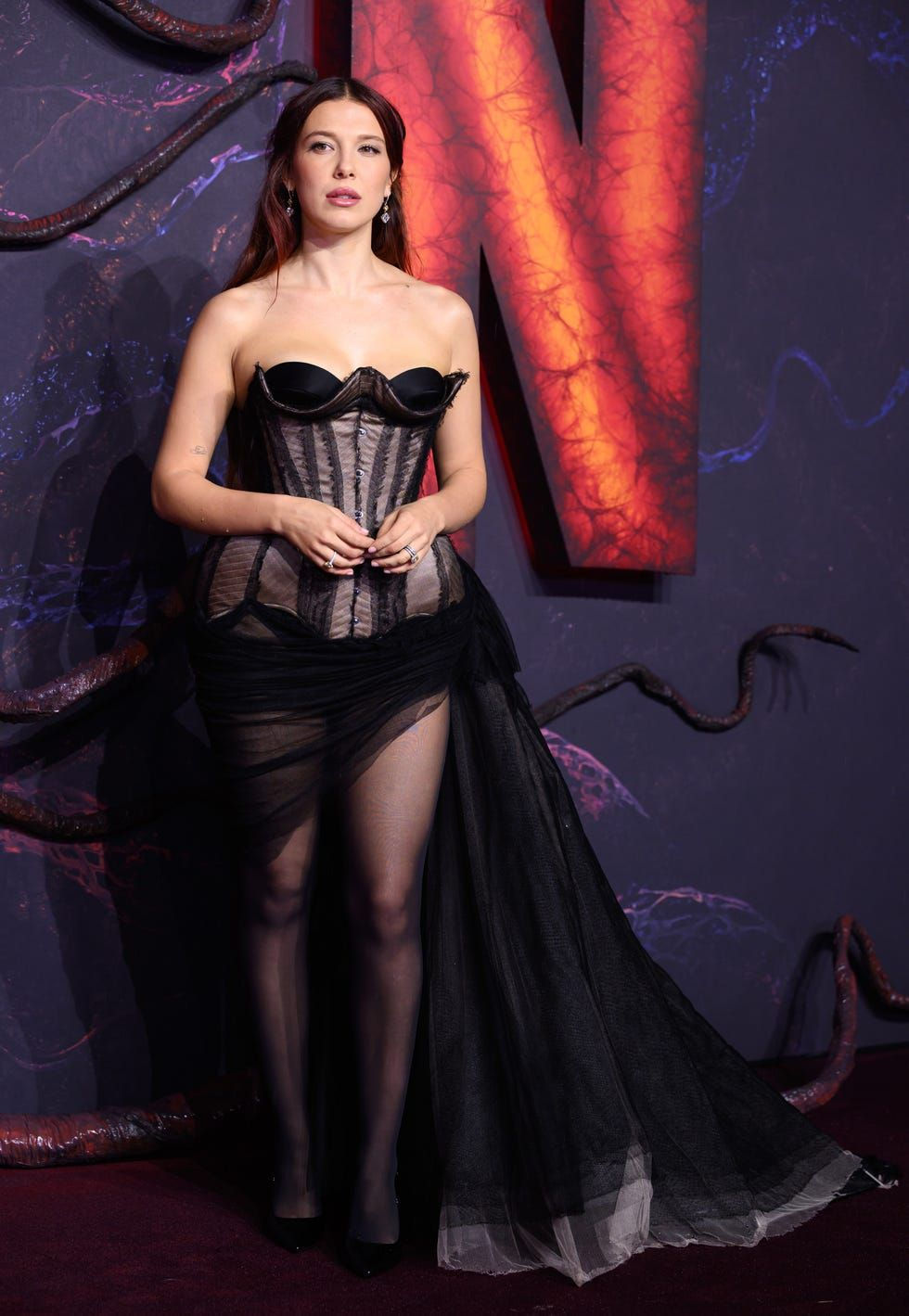Millie Bobby Brown Stands Her Ground on the Red Carpet At Stranger Things Premier
- Nov 14, 2025
- 3 min read
Updated: Jan 5
Millie Bobby Brown’s response on the red carpet at the Stranger Things 5 premiere in London was not just a spontaneous moment—it was a message. When a photographer shouted at her to smile, and she fired back with “Smile? You smile!” before walking off, it was clear this wasn’t about being difficult or temperamental. It was about something deeper—agency, boundaries, and refusing to be reduced to a photo-op accessory.

As someone who has watched Millie’s rise from the beginning—from child star to a young woman building her own brand—her moment of defiance didn’t surprise me. If anything, it felt overdue. For years, she has navigated immense scrutiny, particularly on her appearance. From tabloid speculation to fashion critiques and social media commentary, Millie’s every move has been dissected under a microscope, often in ways that are far harsher than what her male counterparts experience. The command to “smile,” shouted in a public space with dozens of cameras pointed at her, wasn’t just an innocuous request. It was a demand to perform—to comply, to entertain, to be palatable.
Millie responded the way any woman who’s had enough would. Her answer wasn’t disrespectful, it was assertive. And as the editor of a publication that focuses on culture and character, I found it powerful. It showed a young woman who knows her worth and is unwilling to shrink herself to meet someone else’s expectations. In that moment, she flipped the script, reclaiming control over her image and asserting that she is not on the carpet to please anyone’s lens but her own. It’s a move that many public figures talk about, but few execute so succinctly.
It’s not the first time we’ve seen celebrities push back against this kind of behavior. Artists like Chappell Roan and even industry veterans like Denzel Washington have had similar confrontations with photographers who crossed a line. In each case, the media coverage typically divides into two camps—those who call it unprofessional and those who see it for what it is: a rejection of entitlement. Millie’s decision to speak up, walk away, and not entertain the idea that she owes the public a smile reminds us how often we condition women in the spotlight to be constantly agreeable, constantly charming.
What stands out to me is the context. Millie is now 21. She’s an executive producer. She runs her own beauty brand. She’s newly married. She is not the child who first appeared in a shaved head on Stranger Things nearly a decade ago. And yet, for many fans and media voices, she’s still trapped in that image. There’s a stubborn reluctance to let her evolve into adulthood without commentary or constraint. When she refuses to smile on cue, it’s not a tantrum—it’s a conscious break from the expectations that have followed her since she was a preteen.
This moment on the red carpet was also layered with symbolism. Wearing a dramatic couture gown, custom shoes that referenced her character Eleven, and standing at the edge of what is essentially the closing act of a defining chapter in her career, Millie wasn’t there just to be looked at. She was there to be seen—on her terms. The fact that she chose to shut down a seemingly minor red carpet exchange speaks volumes about where she is mentally and professionally. She’s no longer willing to be shaped by the gaze of others.
In today’s hyper-connected world, that kind of stance is more than admirable—it’s essential. Young women, especially those in the public eye, are constantly balancing visibility with vulnerability. Millie’s refusal to smile on command sends a signal not just to the photographers but to fans and followers as well. It says: I am not here to make you comfortable. I am here to be myself. And if that self doesn’t feel like smiling, that’s okay.
As an editor, I’ve covered countless red carpet appearances, and most pass without incident. But every once in a while, there’s a flash of something real. Unfiltered. Not curated for Instagram or rehearsed for the press. That’s what Millie gave us. She reminded us that being a celebrity doesn’t mean forfeiting your right to have boundaries. It doesn’t mean agreeing to every unspoken rule of decorum that’s long overdue for reexamination. And most importantly, it doesn’t mean performing for those who mistake access for ownership.
Millie Bobby Brown’s response wasn’t about a smile. It was about self-respect. And in a world that still expects women to be quiet, cute, and compliant, her choice to push back was the loudest kind of power.







